My friend Hannah is a coffee connoisseur so I asked her to share why she went from chilling at coffee shops every day to making homemade coffee. – Lauren
Hello, my name is Hannah, and I’m an addict. I have the classic withdrawal symptoms if I go a day without- major headaches, irritability, shaking hands. If I don’t have it with me, I’m thinking about the next time I can get my hands on it. Yes, I’ll admit it: I’m addicted to coffee.
As I’ve started to pay more attention to my coffee habits, I’ve noticed two problematic things: The first is that more than half the time I’m on the go and get my coffee in a disposable (hint: plastic) cup, which I throw away and add to the landfills. Sometimes, even if I ask for the drink in a mug or “for here” container, the cafe doesn’t offer them for convenience’s sake.
The second is that I’ve noticed my habit is adding up. Before I moved to New York, I was going to Blue Bottle coffee four times a week before work. At $5/cup, coffee was beginning to take a chunk out of my weekly budget.
I’ve decided it’s time for a change. I’m moving away from to-go coffee and trying my hardest to make it at home. Here’s why:
It’s better for your health.
Coffee is one of the most chemically treated plants on the planet. Up to 250 pounds of chemical fertilizers per acre are used in conventional (non-organic) coffee farming. It is possible to ingest these pesticides when you drink your morning cup, which can lead to health problems like cancer and fertility issues. These pesticides seep into the air, soil and water, causing soil erosion and contaminated waters. This can cause cancer and respiratory issues in the farmers who grow and harvest the beans.
Organic coffee is virtually free from these harmful herbicides and pesticides, benefitting both you and the farmers who harvest your beans. When you’re at the grocery store, make sure you look for the “certified organic” labels- your body and the farmers will thank you.
It’s better for your wallet.
I did the math. Going to coffee shops every day costs me $80/month. That adds up to $960 a year (!!!), which is right below the national average of $1000/year. Making coffee at home costs a fraction of going out. Buying enough organic beans for a month (about $30 for a couple of cups/day) you are saving a little bit over $600/year, leaving enough for a vacation or a bi-monthly massage (who doesn’t need one of those?).
It’s better for the environment.
CUP WASTE: Americans consume 400 million cups of coffee daily. Plastic styrofoam cups can never be completely recycled. Paper cups add up in our landfills and are a main contributor to landfill methane emissions.
GROUND WASTE: It’s tough to know what coffee shops do with all the used coffee grounds and paper filters. Making coffee at home ensures that you have control over what happens to those grounds. To avoid waste, you can compost your grounds at home or reuse them in facial/body scrubs or as fertilizer for your plants and garden.
So if you’re an addict like me, JUST THINK OF HOW MANY MORE COFFEE BEANS YOU CAN BUY WITH THE $600 YOU SAVE BY NOT BUYING COFFEE OUT!!!! Consider me your enabler.
homemade coffee homemade coffee
Sources/Resources:
- http://shop.equalexchange.coop/blog/organic-vs-conventional-coffee/
- http://business.time.com/2012/01/23/how-much-you-spend-each-year-on-coffee-gas-christmas-pets-beer-and-more/
- http://www.carryyourcup.org/get-the-facts
- http://thepaperlifecycle.org/end-of-life/in-depth/the-landfill-and-climate-change/
- https://www.alternet.org/food/coffee-pesticides
- http://www.healthyorganicwoman.com/sipping-pesticides-in-your-morning-coffee/






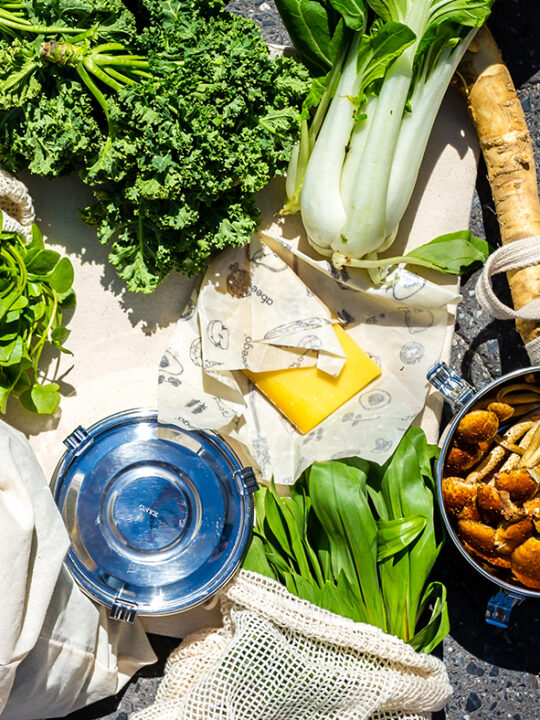
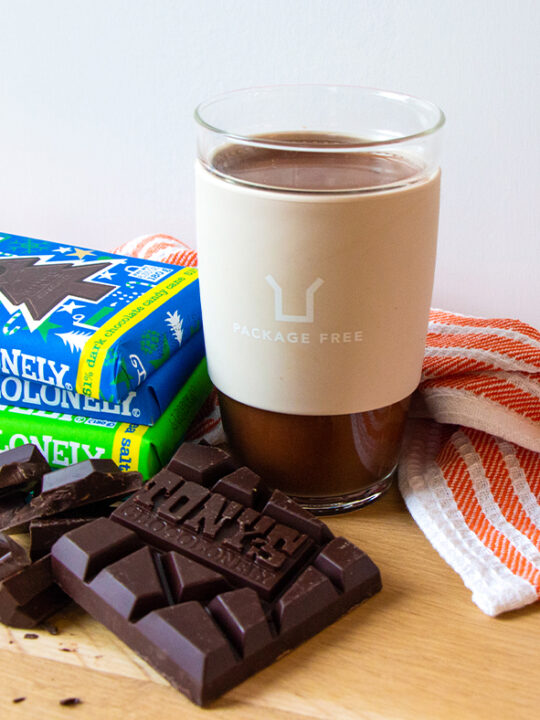
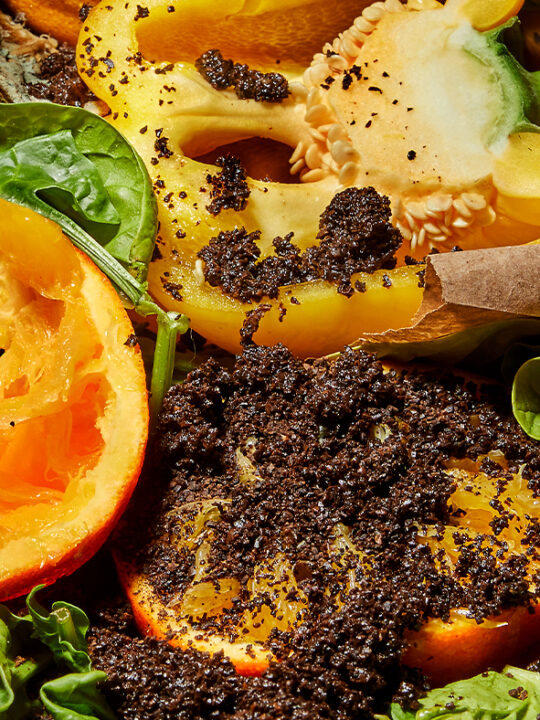
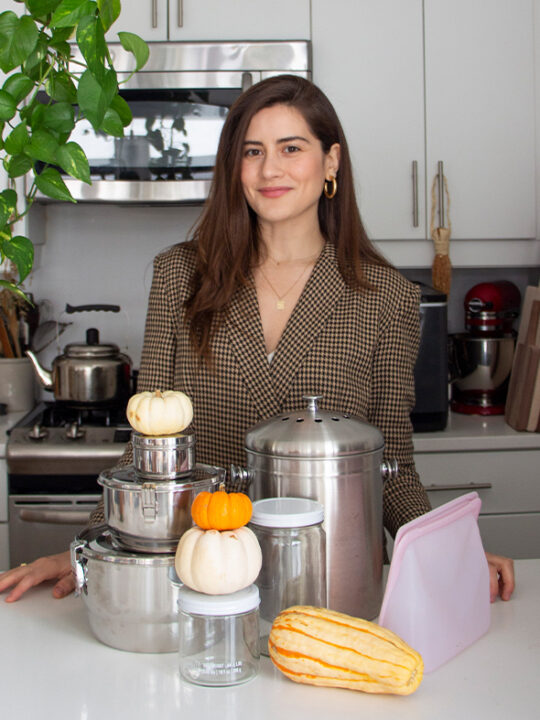

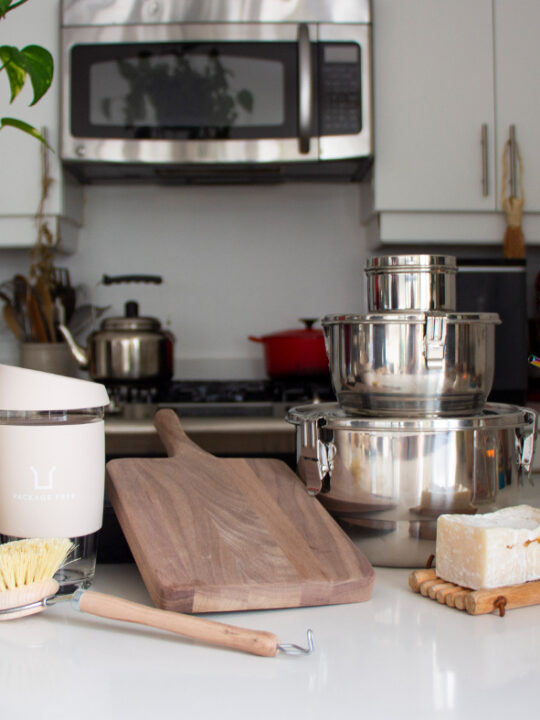
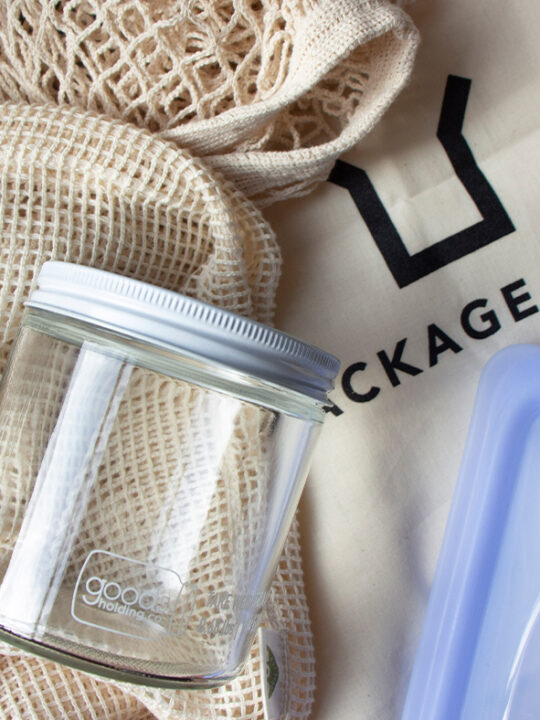
8 comments
It’s crazy to think how much money you’ll save from having coffee at home! It’s so hard to resist a frothy cappuccino though, they never work out the same at home.. I like to get out of the office at lunch but I always bring a reusable coffee cup, a lot of places offer discount if you bring your own cup which is good to know! 🙂
I just saw some cool manual frothers that Bodum sells – it could be a cool alternative. Also, you could heat milk on the stove and use a wand frother. Both could probably be found secondhand.
I also switched to Zero Waste coffee a while ago and I have never looked back. 🙂 There is a lovely local place where i live in the UK and I get my jar filled every time. The coffee is totally delicious and package free.
http://poppygoeswild.blogspot.co.uk/2017/10/zero-waste-coffee.html
That’s so awesome, love that you can fill your coffee all over the world!! Thanks for your comment <3
I love your mug! I want the same one but I’m assuming its secondhand..?
Thank you for the reminder about coffee. I have organic grains and they are just sitting on the shelf while I use my instant coffee. Tomorrow mornings coffee will be done right!
I have a question about the bamboo toothbrush. How do you recycle it? I use the old ones for cleaning but now want to dispose of these.
Thanks!
What do you do about the metal filter in the french press, once it gets old?
Where can I buy this mug?